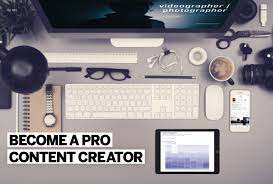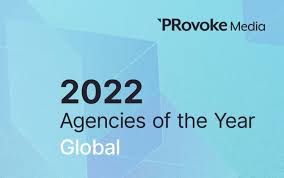Unlocking Success: The Essential Role of a Content Management Agency in Today’s Digital Landscape
The Role of a Content Management Agency in Today’s Digital Landscape
In today’s fast-paced digital world, content has become a crucial element for businesses looking to engage with their audience, build brand awareness, and drive conversions. However, creating and managing high-quality content consistently can be a daunting task for many companies.
This is where a content management agency plays a vital role. A content management agency is a team of professionals who specialise in developing, curating, and distributing content across various digital platforms on behalf of their clients.
One of the key responsibilities of a content management agency is to create tailored content strategies that align with the client’s goals and target audience. By conducting thorough research and analysis, they can identify the most effective types of content to produce and the best channels to distribute it on.
Content management agencies also play a crucial role in ensuring consistency across all content produced. They maintain brand voice and messaging guidelines to ensure that every piece of content reflects the client’s brand identity accurately.
Moreover, these agencies are adept at leveraging data analytics to measure the performance of content campaigns. By tracking key metrics such as engagement rates, click-through rates, and conversion rates, they can fine-tune their strategies for optimal results.
Another important aspect of a content management agency’s role is staying updated with the latest trends and technologies in the digital space. This allows them to incorporate innovative approaches into their content strategies and stay ahead of the competition.
Overall, a content management agency serves as a valuable partner for businesses looking to enhance their online presence through compelling and relevant content. By outsourcing their content needs to experts in the field, companies can focus on other core aspects of their business while reaping the benefits of effective content marketing.
Maximising Success: 8 Advantages of Partnering with a Content Management Agency
- Expertise in content strategy development
- Access to a team of skilled content creators
- Consistent brand messaging across all platforms
- Utilisation of data analytics for performance tracking
- Ability to adapt to the latest digital trends
- Saves time and resources for businesses
- Enhanced online visibility and audience engagement
- Tailored content solutions based on client’s specific needs
Challenges of Engaging a Content Management Agency: Costs, Control, Communication, and Dependency
- Costly service fees may be a barrier for small businesses with limited budgets.
- Lack of direct control over content creation and scheduling may lead to misalignment with brand vision.
- Communication challenges can arise when coordinating with an external agency, potentially causing delays or misunderstandings.
- Dependency on a content management agency may hinder in-house team development and creativity.
Expertise in content strategy development
A significant advantage of partnering with a content management agency is their expertise in content strategy development. These professionals possess the skills and knowledge to create tailored content strategies that align with a company’s goals and target audience. By conducting in-depth research and analysis, content management agencies can identify the most effective types of content to produce and determine the best channels for distribution. Their strategic approach ensures that every piece of content is purposeful, engaging, and contributes to achieving the client’s objectives effectively.
Access to a team of skilled content creators
One significant advantage of partnering with a content management agency is gaining access to a team of skilled content creators. These professionals are experts in crafting compelling and engaging content that resonates with the target audience. By leveraging their diverse skill sets and industry knowledge, businesses can benefit from high-quality content that is tailored to their specific needs and objectives. This team of content creators can bring fresh perspectives, innovative ideas, and creative solutions to help businesses stand out in the crowded digital landscape and achieve their communication goals effectively.
Consistent brand messaging across all platforms
Ensuring consistent brand messaging across all platforms is a significant advantage of partnering with a content management agency. By maintaining a unified voice and identity in all content produced, the agency helps reinforce brand recognition and trust among the target audience. Consistency in messaging also helps to establish a strong brand image and differentiate the business from competitors. With expertise in aligning content with brand guidelines, values, and tone, a content management agency can effectively convey the brand’s story and key messages across various digital channels, enhancing overall brand coherence and impact.
Utilisation of data analytics for performance tracking
A significant advantage of partnering with a content management agency is their adept use of data analytics for tracking performance. By leveraging data analytics tools and techniques, these agencies can monitor key metrics such as engagement rates, click-through rates, and conversion rates to evaluate the effectiveness of content campaigns. This data-driven approach enables them to make informed decisions, refine strategies, and optimise content for better results. The ability to track performance through data analytics allows content management agencies to demonstrate tangible ROI to their clients and continuously improve the impact of their content efforts in today’s competitive digital landscape.
Ability to adapt to the latest digital trends
A significant advantage of partnering with a content management agency is their ability to adapt swiftly to the ever-evolving digital landscape and incorporate the latest trends into content strategies. These agencies stay abreast of emerging technologies, platforms, and consumer preferences, allowing them to implement innovative approaches that resonate with the target audience. By leveraging their expertise in navigating new digital trends, content management agencies can help businesses stay ahead of the curve and maintain a competitive edge in the dynamic online environment.
Saves time and resources for businesses
A significant advantage of partnering with a content management agency is the efficient use of time and resources it offers businesses. By entrusting their content creation and management tasks to professionals, companies can free up valuable internal resources and focus on core business activities. This not only saves time but also ensures that the content produced is of high quality and aligns with the company’s objectives. With the expertise and experience of a content management agency, businesses can streamline their content processes, increase productivity, and ultimately achieve better results in their digital marketing efforts.
Enhanced online visibility and audience engagement
A significant benefit of partnering with a content management agency is the enhancement of online visibility and audience engagement. By crafting strategic content tailored to the target audience and distributing it across various digital platforms, these agencies help businesses increase their online presence. This heightened visibility not only attracts more traffic to the company’s website but also fosters meaningful interactions with the audience. Through engaging and relevant content, businesses can connect with their target demographic, build brand loyalty, and drive conversions effectively. Ultimately, the expertise of a content management agency can significantly boost a company’s online visibility and facilitate deeper engagement with its audience.
Tailored content solutions based on client’s specific needs
One significant advantage of partnering with a content management agency is their ability to provide tailored content solutions based on the client’s specific needs. By conducting in-depth analysis and understanding the client’s goals, target audience, and industry landscape, these agencies can create customised content strategies that resonate with the intended audience and align with the client’s objectives. This personalised approach ensures that the content produced is relevant, engaging, and effective in achieving the desired outcomes for the client.
Costly service fees may be a barrier for small businesses with limited budgets.
For small businesses with limited budgets, the potentially high service fees of a content management agency can pose a significant barrier. The cost of outsourcing content management services may be prohibitive for smaller companies, making it challenging for them to access the expertise and resources needed to develop and execute effective content strategies. This financial constraint could limit their ability to compete with larger competitors who have more substantial marketing budgets. As a result, small businesses may need to explore alternative solutions or allocate their resources carefully to overcome this obstacle and maximise their online presence within their financial constraints.
Lack of direct control over content creation and scheduling may lead to misalignment with brand vision.
One significant drawback of working with a content management agency is the potential lack of direct control over content creation and scheduling, which can result in misalignment with the brand’s vision. When businesses entrust their content strategy to an external agency, there is a risk that the agency may not fully grasp the intricacies of the brand identity and messaging. This can lead to inconsistencies in content tone, style, or messaging that do not resonate with the target audience or accurately reflect the brand’s values. Without direct oversight, there is a possibility of diluting the brand’s voice and losing control over how it is perceived by consumers.
Communication challenges can arise when coordinating with an external agency, potentially causing delays or misunderstandings.
When collaborating with an external content management agency, communication challenges may emerge, leading to possible delays or misunderstandings in the project. The distance and separation between the client and the agency can sometimes hinder seamless communication, making it challenging to convey feedback, updates, or expectations effectively. This lack of direct interaction can result in misinterpretations or discrepancies in understanding, potentially impacting the timely delivery and quality of the content produced. It is essential for both parties to establish clear channels of communication and regular checkpoints to address any issues promptly and ensure alignment throughout the collaboration process.
Dependency on a content management agency may hinder in-house team development and creativity.
Relying heavily on a content management agency can potentially impede the growth and creativity of an in-house team. When a company outsources all of its content management needs, there is a risk that the internal team may become overly dependent on external expertise, limiting their own development and learning opportunities. In-house teams may also feel disconnected from the content creation process, which could hinder their ability to contribute fresh ideas and innovative solutions. This dependency on an agency may result in a lack of ownership and autonomy within the internal team, ultimately stifling creativity and hindering their potential for growth and skill development in the long run.











